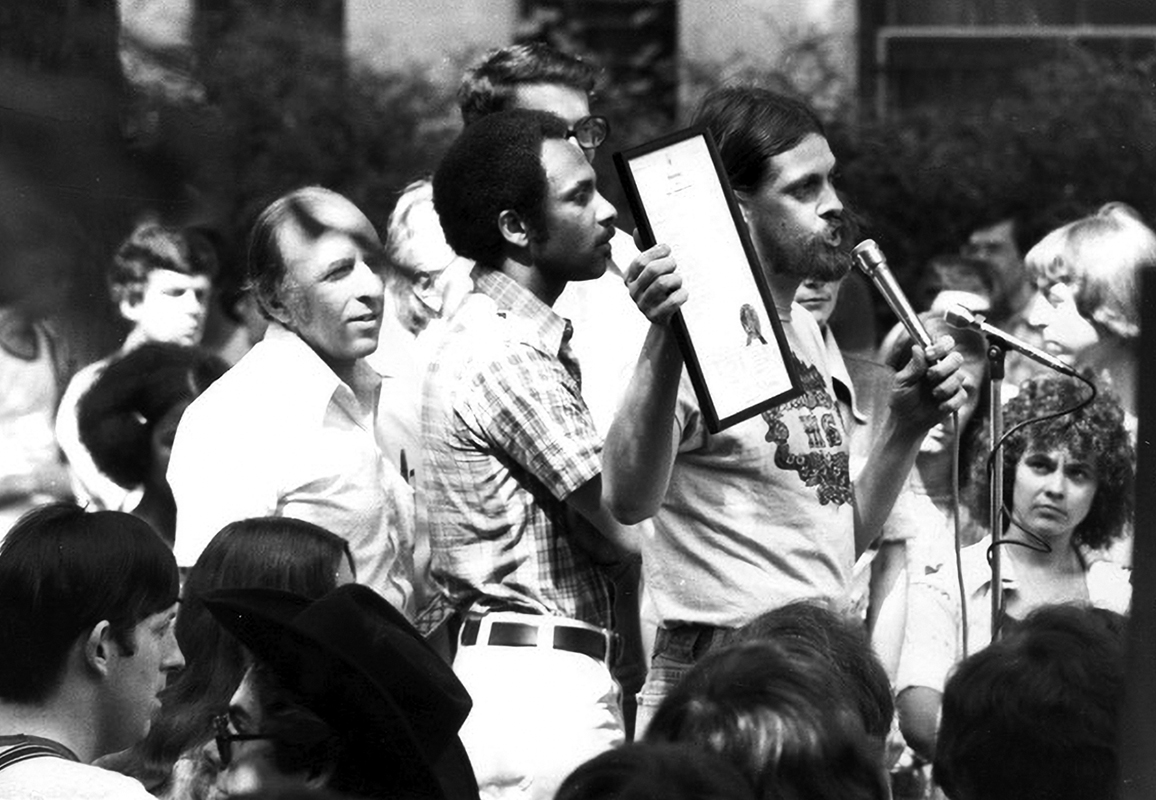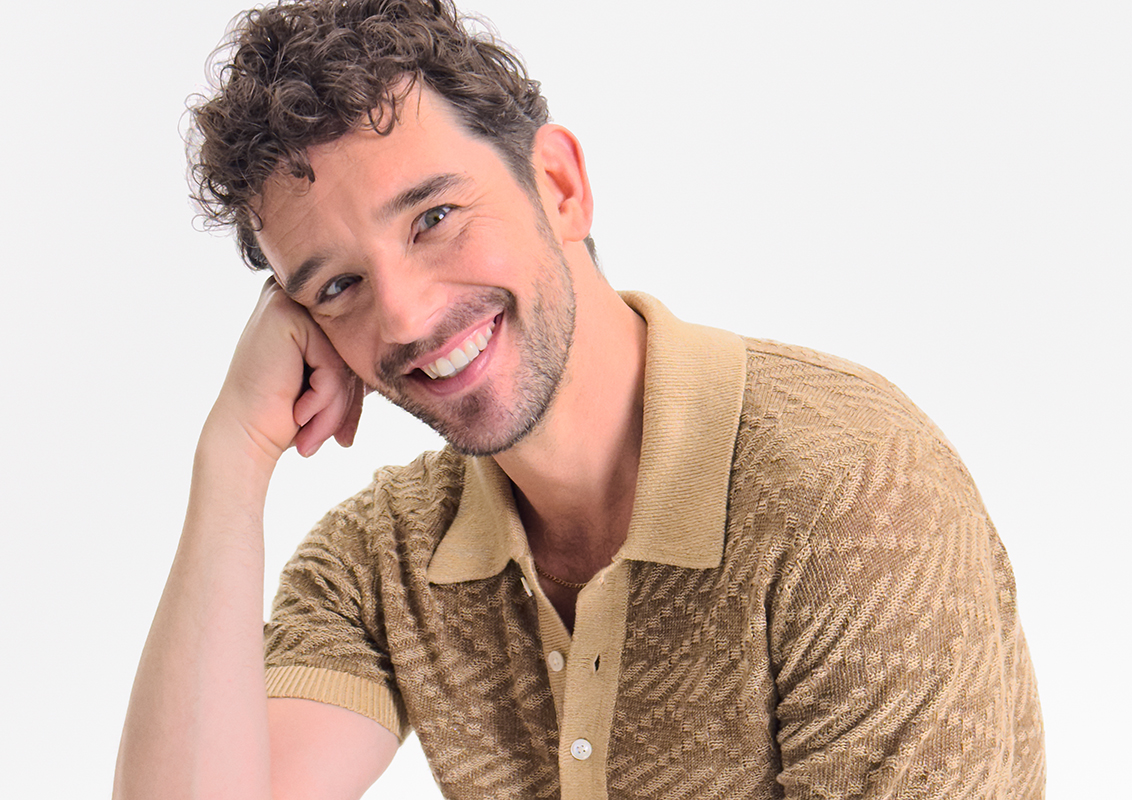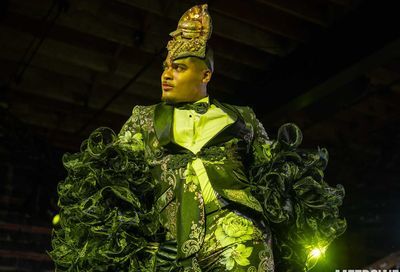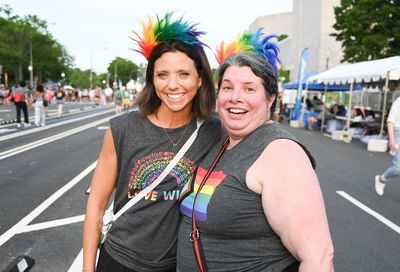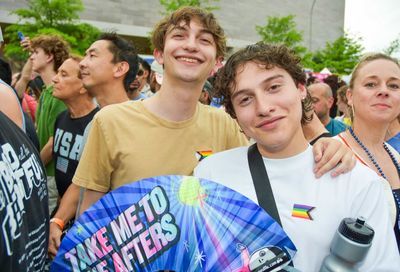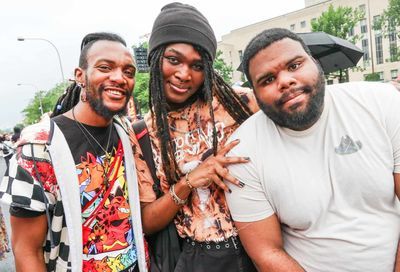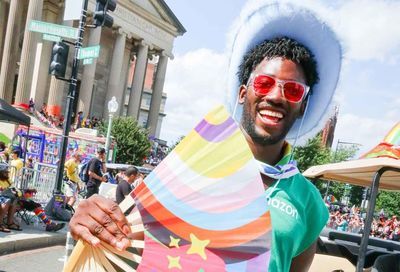Mixed Schoolbag
Stein Club gets assorted answers but few hard commitments from Rhee
Continuing her introduction to the District, the new chancellor of the District of Columbia Public Schools (DCPS), Michelle Rhee, cleared her calendar Monday night to sit with the Gertrude Stein Democratic Club, the city’s largest GLBT political group, for more than an hour during the height of back-to-school season. Rhee has been charged with leading Mayor Adrian Fenty’s (D) push to repair the District’s notoriously troubled public-school system.
Stein President Mario Acosta-Vélez set the tone as Rhee entered the former City Council chambers at Judiciary Square shortly after the start of the 7 p.m. meeting, offering to Rhee, ”We want to have just a conversation, nothing too formal,” as she sat casually cross-legged, face toward the crowd.
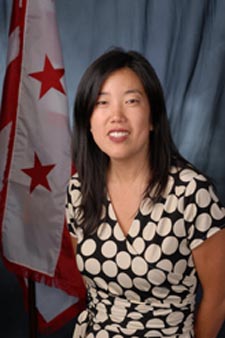 Michelle Rhee of DCPS |
Rhee set her own tone, speaking frankly after being introduced. ”This has been the most fascinating seven weeks of my entire life,” she began, looking at the short time she’s been heading DCPS, listing those things that have stunned her as begins her work: DCPS attitudes and work ethics, the DCPS culture overall, and dysfunctional systems. These first impressions have left her ”infuriated,” particularly in that system-wide shortcomings, she says, have become ”commonplace.”
”Everyone has said to me, ‘You just have to start over from the beginning.’… If we think we’re going to change this system by being better bureaucrats, we should throw in the towel right now.”
Rhee described her own style that she brings to the problem as one that starts with a laser-like focus on a few key issues. Top on her list is the school buildings and facilities themselves. Her Monday audience was, however, seemingly and understandably concerned with how she might take on homophobia in D.C. schools.
Lane Hudson, a blog activist, wanted to know if Rhee would be making a priority of combating HIV infection rates among D.C. youth, specifically by employing ”gay-straight alliances,” or GSAs.
Answered Rhee: ”On this issue specifically, no…. We have administrators themselves who are homophobic. There are a lot of people who work for the system who don’t understand the ramifications of passiveness. We need a tremendous amount of training.”
While Rhee’s bluntness may have seemed refreshing, her forthright answers did not necessarily leave attendees feeling confident that a Rhee school system would be less homophobic than in years past.
Darrin Glymph, the Stein Club’s vice president for administration, admitted near the end of Rhee’s give and take with the audience, that he felt ”troubled” by some of her responses to attendees’ concerns.
”I know you’re brilliant, I know you have the passion, [but] I need to know what you’re going to do to address homophobia in DCPS,” said Glymph, stressing that he was not hearing anything ”concrete” from Rhee in this regard.
The response from Rhee was a mixed bag that, on one hand, was bereft of feel-good propaganda, and on the other, less than what this audience had likely hoped for.
”I don’t want to tell you what I think you want to hear, and then not deliver,” Rhee responded. ”What I’m committing to is training for all teachers on these issues. In my mind, this is not optional. [But] I can’t say ‘zero tolerance.’ People wouldn’t even know what that meant…. I think the District is great at saying things and then not following through.”
Rhee elaborated on the challenge she faces in battling institutionalized homophobia, saying that many DCPS teachers and administrators ”are good, church-going people who believe that [homosexuality] is wrong,” and that a Power Point presentation about tolerance wouldn’t make much difference to them. Her mission, she said, was in helping them differentiate between believing whatever homophobic values they like, while keeping those same values out of her schools: ”People are going to have trouble balancing that out. It’s a process. We have to help them with that.”
Adam Tenner, who heads Metro TeenAIDS, asked for a commitment regarding teaching gay-inclusive health standards. Rhee, who at times resisted being pinned down, did commit to seeing that DCPS students have access to age-appropriate information about sexual orientation.
Tenner seems to speak for the crowd when offering his summation of Rhee’s appearance before the Stein Club.
”She’s super energetic and charismatic,” he says. ”For youth in D.C., it’s incumbent on us to extend the chancellor as much trust as we can, until she gives us reason not to.”
Tenner says that while he’s pleased with Rhee’s stance on sexual-orientation information and student safety, he has ”conflicting emotions” about what Rhee’s approach may hold.
”I think the jury’s still out,” he says. ”Community groups, and the community in general, will need to keep the pressure on the mayor and [Deputy Mayor for Education] Victor Reinoso and the chancellor when it comes to the safety of LGBT youth.”
Support Metro Weekly’s Journalism
These are challenging times for news organizations. And yet it’s crucial we stay active and provide vital resources and information to both our local readers and the world. So won’t you please take a moment and consider supporting Metro Weekly with a membership? For as little as $5 a month, you can help ensure Metro Weekly magazine and MetroWeekly.com remain free, viable resources as we provide the best, most diverse, culturally-resonant LGBTQ coverage in both the D.C. region and around the world. Memberships come with exclusive perks and discounts, your own personal digital delivery of each week’s magazine (and an archive), access to our Member's Lounge when it launches this fall, and exclusive members-only items like Metro Weekly Membership Mugs and Tote Bags! Check out all our membership levels here and please join us today!









